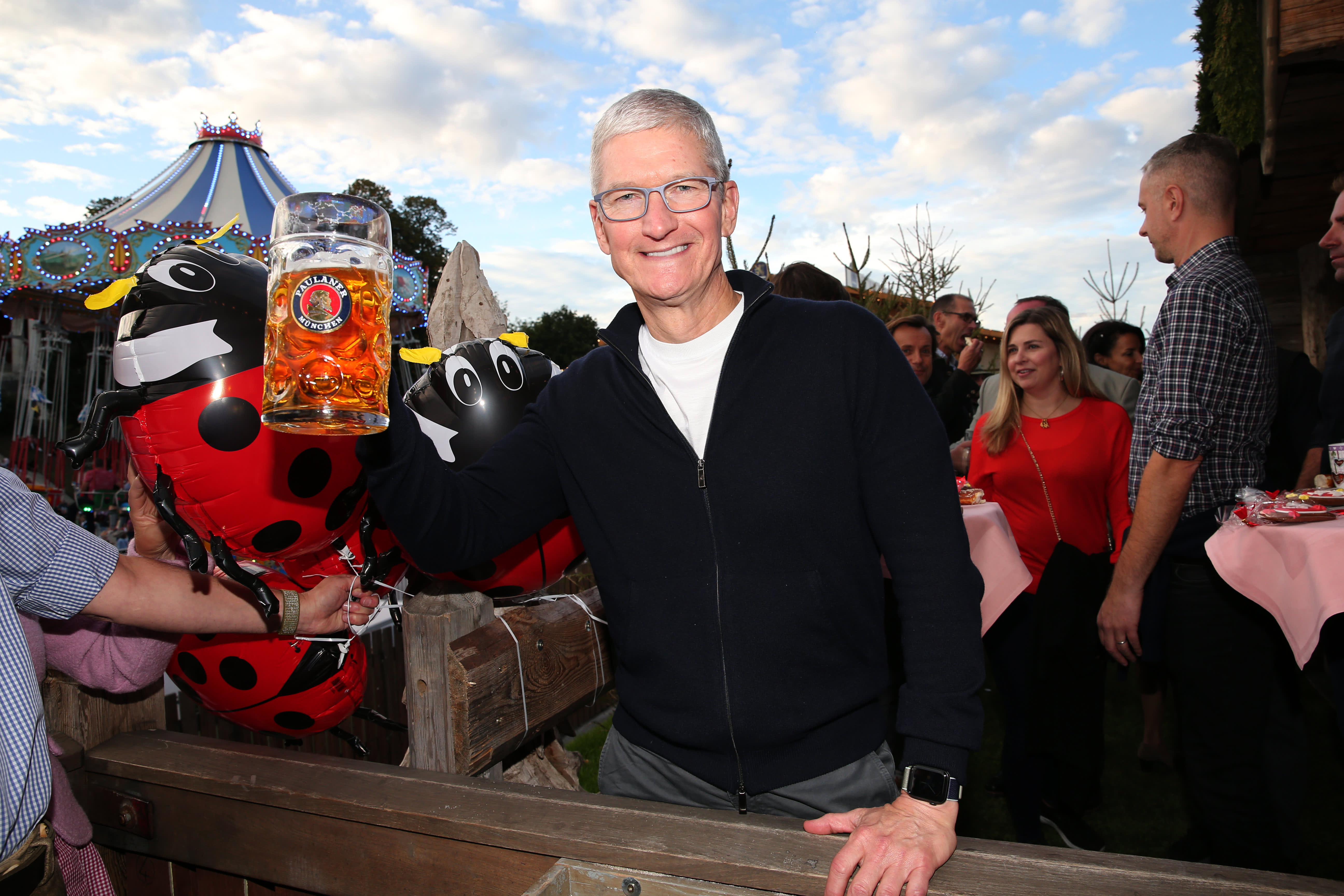
MUNICH, GERMANY – SEPTEMBER 29: Tim Cook, Apple CEO, during Oktoberfest 2019 at the Kaeferschaenke beer tent.
Gisela Schober | German team Getty Images
Apple has announced that it plans to create a major new chip lab in Munich as part of a billion euros ($ 1.19 billion) plus an investment in Germany over the next three years.
The Cupertino firm announced Wednesday that it will open a new 30,000-square-foot facility on downtown Karlstrasse in Munich by the end of next year.
Apple said it will make Munich its “European Silicon Design Center” and will hire hundreds of new employees in the Bavarian capital.
Apple said the new facility will be Europe’s largest research and development site for semiconductors and mobile wireless programs, suggesting it will overshadow similar sites like Arm’s in Cambridge and NXP in Eidenhoven.
The announcement comes as the world is struggling with the shortage of chips that has caused pain in the auto industry and other industries. The global shortage of chips has worried governments around the world. Semiconductors are used in almost every electronic device, from laptops and cell phones to the brake sensors in our cars.
Engineers at Apple’s new facilities will focus on 5G and future wireless technologies, Apple said, adding that they will also develop modems for Apple products.
Apple has 4,000 employees throughout Germany and already employs 1,500 engineers in seven offices in Munich. It is possible that some of them will consolidate under one roof when the new building is ready.
Apple said its current engineers in Munich work in areas such as power management design, application processors and wireless technologies. Together, they have improved performance and efficiency on iPhone, iPad, Apple Watch and Mac with the M1 chip, he added.
“I couldn’t be more excited about everything our Munich engineering teams will discover: from exploring the new frontiers of 5G technology to a new generation of technologies that bring power, speed and connectivity to the world” , said Tim Cook of Apple. CEO, in a statement.
“Munich has been the home of Apple for four decades and we are grateful to this community and to Germany for being part of our journey.”
Apple claims to have spent more than 15 billion euros with more than 700 companies in Germany over the past five years, including chip maker Infineon and battery firm Varta.
Nathan Beniach, a venture capitalist who has backed the launch of Graphcore chips, told CNBC that the new chip lab is a strong move from Apple and is bullish.
“I think Apple’s vertical integration means more control over its supply chain and its margins, but most important is the flexibility to design exactly what they need to power the products they want to build,” he said. “In contrast to having to build with what’s available or convincing suppliers to do it.”
Munich is one of the most important technology centers in Europe and other technology giants use it for R&D; Google employs about 1,000 people in the city. It also hosts vehicle giants like BMW and Audi, which have thousands of engineers Apple could hire for its reported Automobile project.
On Tuesday, the European Union announced plans to rely less on traditionally manufactured off-block technologies, such as increased chip production.
Apple isn’t the only one creating new chip labs in Europe, hosting some of the best universities in the world. Chinese technology giant Huawei was given the green light last June to build a £ 1bn chip research center in Cambridge, England.